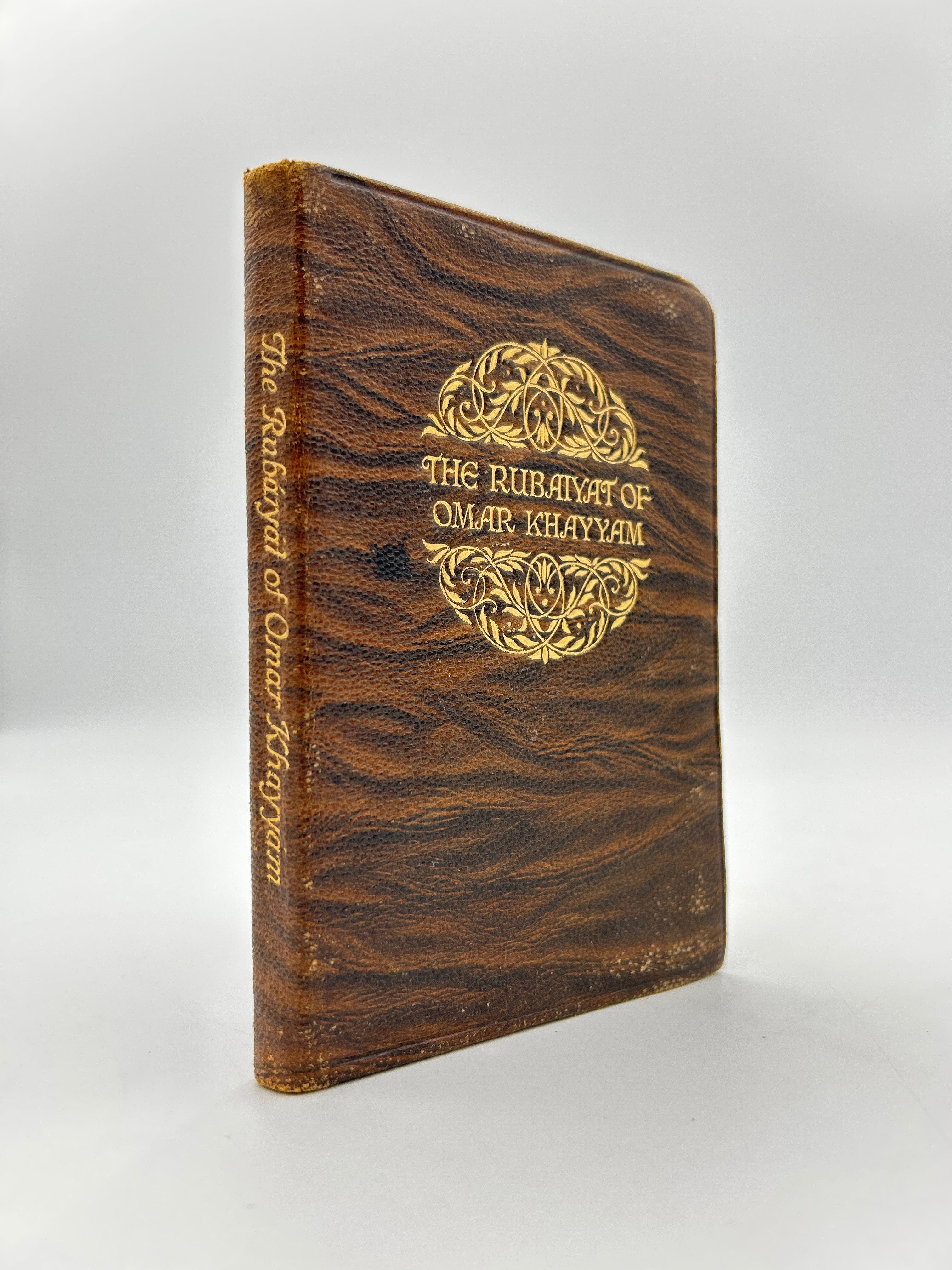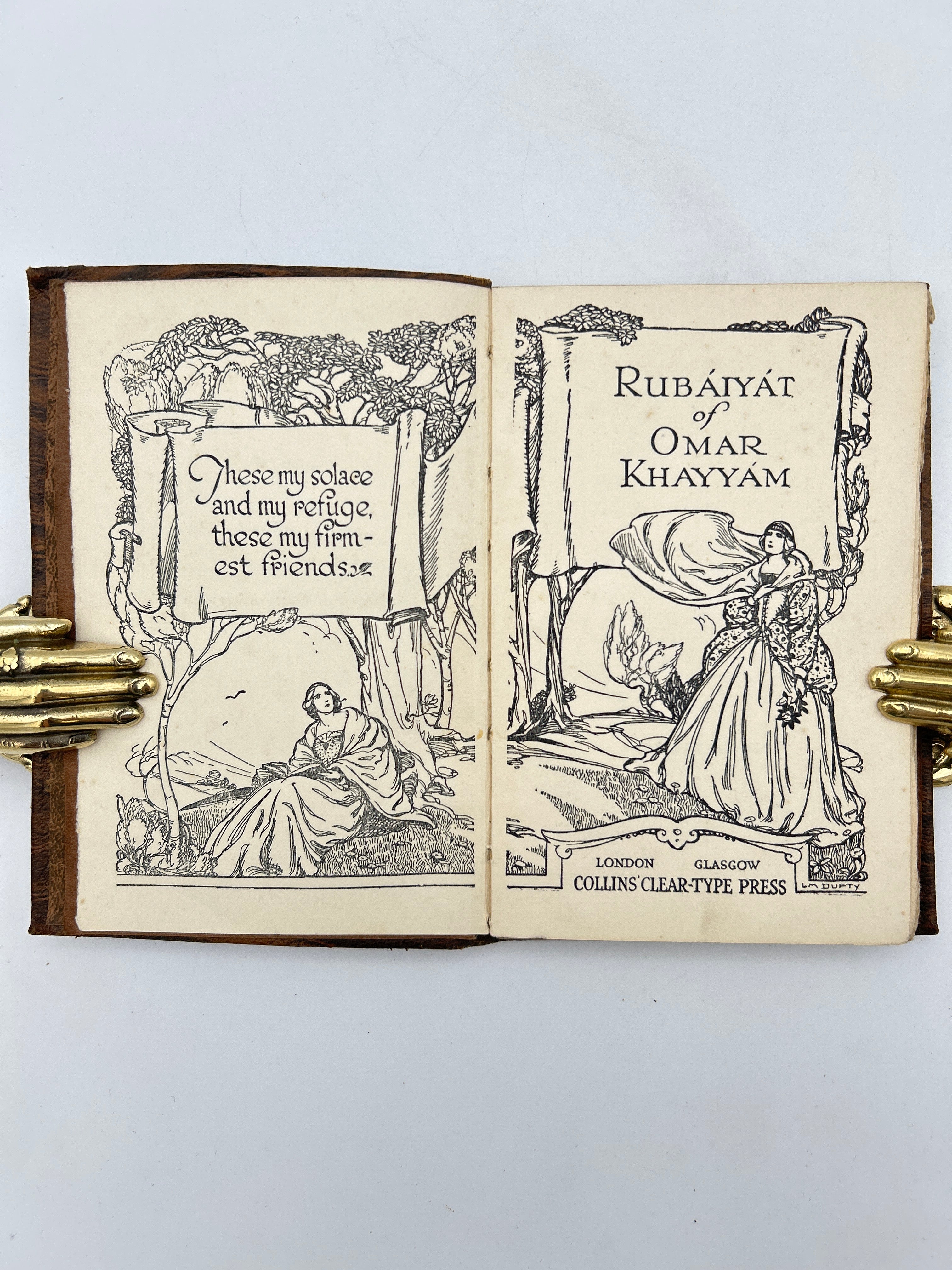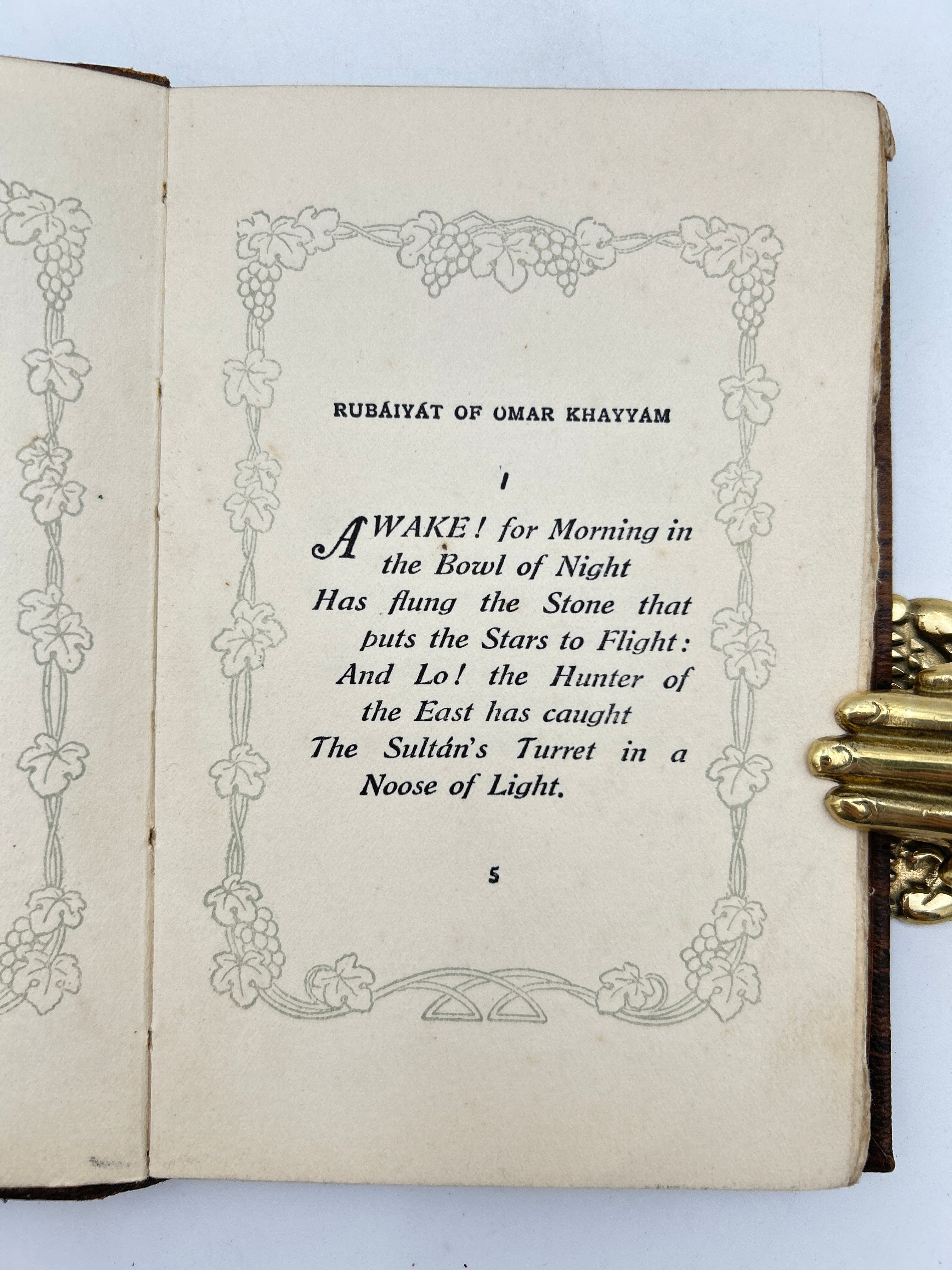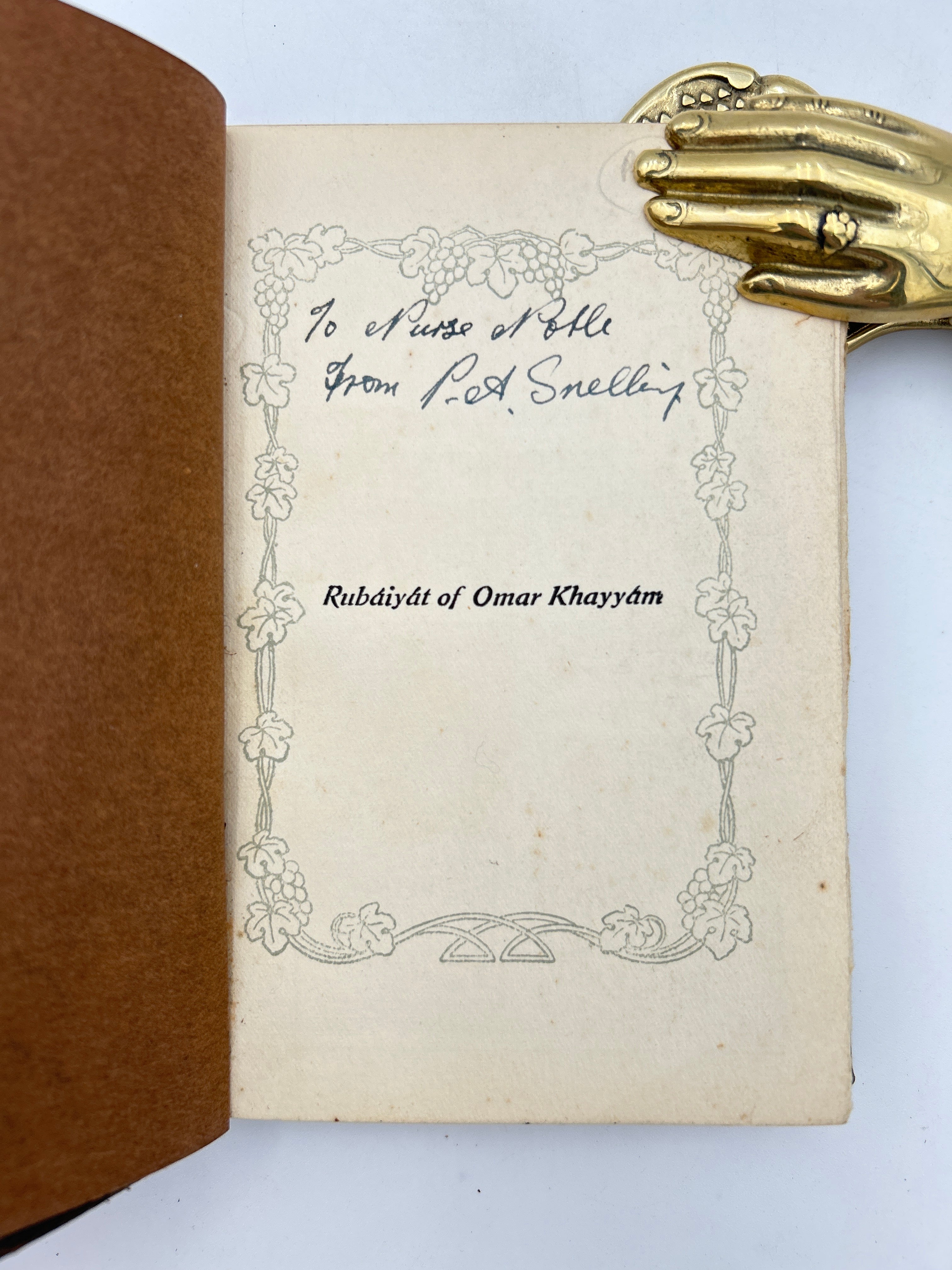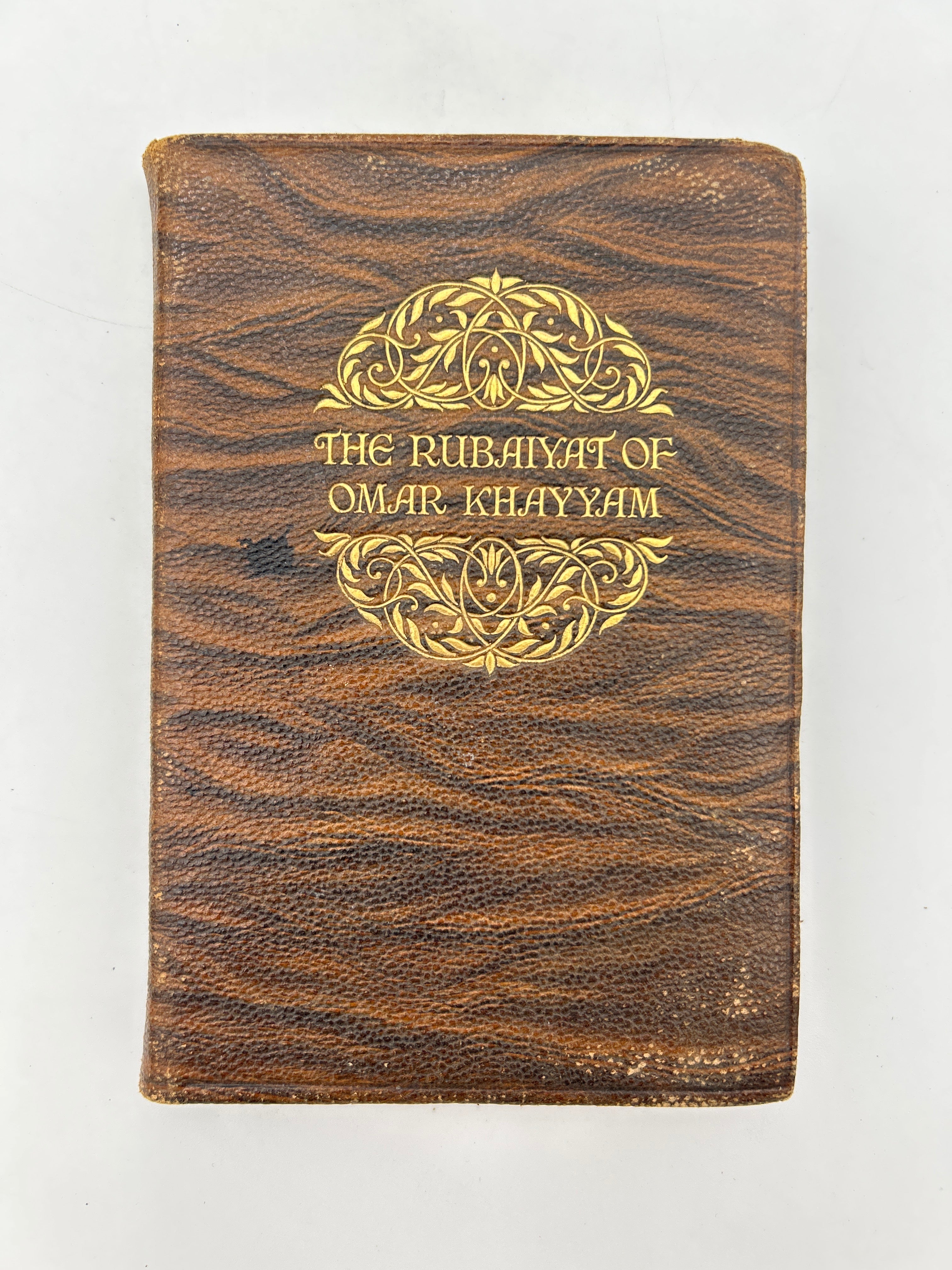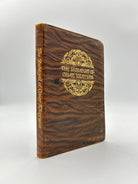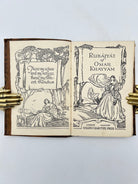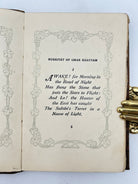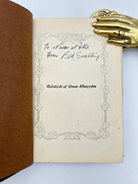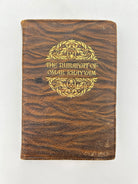The Rubáiyát Of Omar Khayyám
Couldn't load pickup availability
5W Omar Khayyám. London: Collin’s Clear-Type Press, ca. 1900s.
Notes
The Rubáiyát of Omar Khayyám is a collection of quatrains (four-line poems) attributed to Omar Khayyám, a Persian mathematician, astronomer, and poet who lived from 1048 to 1131. The work was largely unknown in the Western world until the 19th century, when English mathematician and poet Edward FitzGerald published his famous translation in 1859. FitzGerald’s version was not a literal translation but a highly interpretive rendering that captured the spirit of Khayyám’s poetry, emphasizing themes that resonated with Victorian readers, such as the fleeting nature of life, the pleasures of the moment, and philosophical reflection on fate and mortality. The Rubáiyát has since become one of the most celebrated and widely read works of Persian literature in the English-speaking world.
The quatrains of the Rubáiyát explore existential questions, the transience of life, and the pursuit of happiness, often using metaphors drawn from wine, gardens, and nature. Khayyám reflects on the limits of human knowledge, the inevitability of death, and the importance of savoring the present rather than worrying about the future. While some quatrains are melancholic and contemplative, others celebrate joy, friendship, and love, creating a balance between philosophical depth and sensuous delight. The work’s lyrical simplicity, combined with its profound reflections on life and mortality, has allowed it to endure as a timeless meditation on the human condition.
Description
Pebbled brown and black soft leather binding with a tiger stripe style design. Gilt lettering and ornamentation on upper board and spine. Illustrated title page and frontispiece with floral borders on every page. Minimal fading/rubbing to covers. Fully intact. Pen inscription to half-title page. Very good condition.
